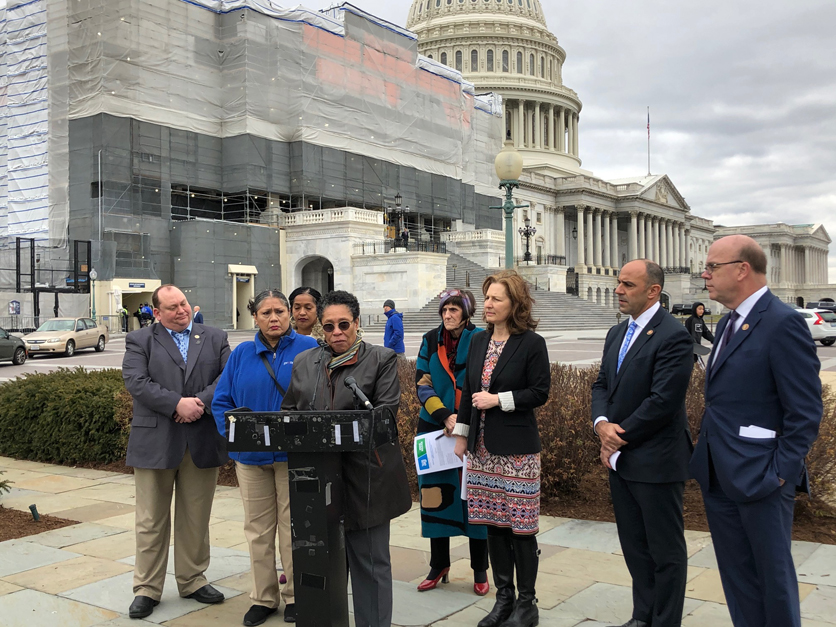The Democratic-controlled House is supporting a multi-state lawsuit aimed at blocking the Trump administration from making it harder for states to exempt able-bodied adults from work requirements in the Supplemental Nutrition Assistance Program.
The lawsuit filed in the D.C. Circuit Court of Appeals challenges a USDA rule that would limit states’ ability to provide SNAP benefits to unemployed, able-bodied adults without dependents, or ABAWDs, if they are out of work for more than three months in a three-year period.
Lawyers for the House filed a brief on Monday supporting the lawsuit, which was filed by 15 states and the District of Columbia. Senior members of the House Agriculture Committee on Tuesday endorsed the legal action.
Rep. Marcia Fudge, (speaking in the photo above) who chairs House Ag's subcommittee on nutrition, has been battling the administration over the rule since it was proposed in December 2018.
“They will not even look to try to determine who ABAWDs are,” Fudge, D-Ohio, told reporters Tuesday. “So why would I agree to take food away from people who we know need it? ... We think it is just unfair.”
She said that “without question” there is enough evidence against USDA for the 15 states and D.C. to win the case.
"We will not stand idly by while President Trump takes food off the table of hungry Americans," said Rep. Jim McGovern, a Massachusetts Democrat who chairs the House Rules Committee and is a member of the Agriculture Committee.
The USDA rule set to take effect in April, would tighten waiver provisions developed by the Clinton administration to implement a 1996 welfare reform law.
The rule would prevent areas from getting waivers from the SNAP work requirement unless their unemployment rate is at least 6%. That restriction, coupled with increased data and evidence standards, is expected to dramatically reduce the areas that qualify for waivers.
Under the 1996 law, ABAWDs from ages 18 to 49 are supposed to work or be in a job training program for at least 20 hours a week unless they live in an area exempted from the requirement.
Interested in more coverage and insights? Receive a free month of Agri-Pulse or Agri-Pulse West by clicking here.
The current rule is expected to reduce SNAP enrollment by 688,000 people.
“USDA does not comment on pending litigation,” a department spokesperson said.
When the rule was announced, Perdue argued the rule is simply following the original intent of the 1996 law, saying it would "restore the dignity of work to a sizable portion of our population."
District of Columbia Attorney General Karl Racine, who is helping lead the lawsuit, said it is intended "to protect SNAP recipients nationwide and to check an administration that is attempting another end-run around Congress to advance its heartless agenda."
The states included in the lawsuit are New York, California, Connecticut, Maryland, Massachusetts, Michigan, Minnesota, Nevada, New Jersey, Oregon, Pennsylvania, Rhode Island, Vermont and Virginia.


